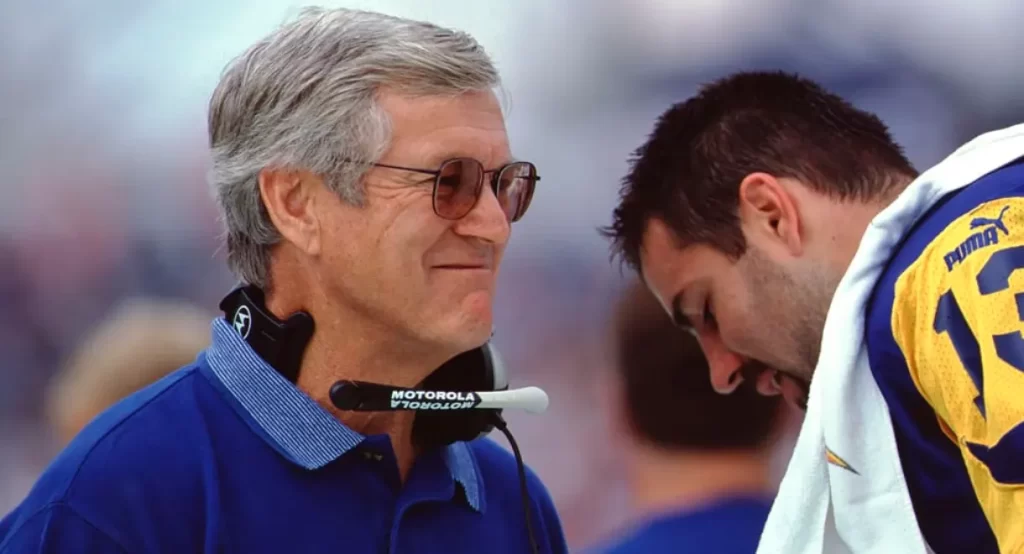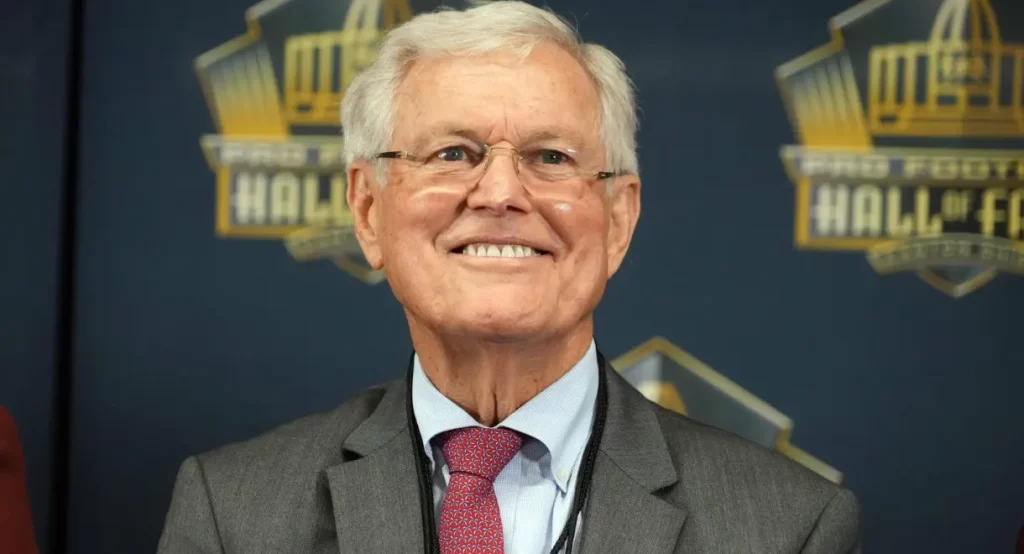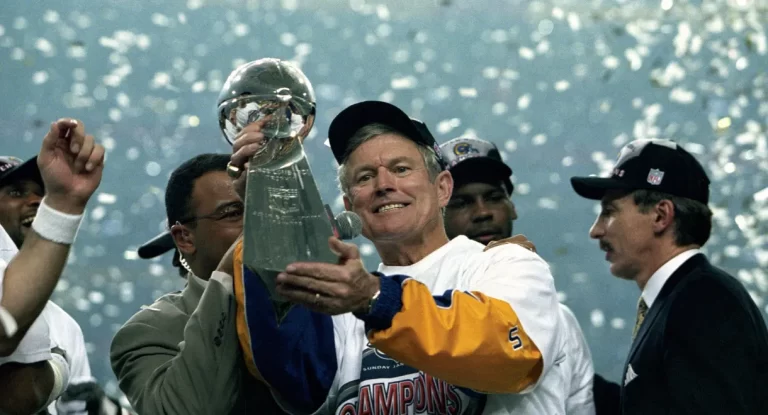Who is Dick Vermeil and What is His Winning Philosophy?
Dick Vermeil is a legendary figure in the world of American football coaching. Born on October 30, 1936, in Calistoga, California, Vermeil had a successful career as a head coach in high school, college, and professional football. He is best known for his time as the head coach of the Philadelphia Eagles from 1976 to 1982, where he led the team to their first Super Bowl appearance in franchise history. Vermeil’s coaching philosophy was centered around building a winning culture, motivating his players to greatness, meticulous preparation, talent evaluation, discipline, effective communication, making adjustments, and leadership.
Building a Winning Culture: The Importance of Team Chemistry

One of the key aspects of Vermeil’s coaching philosophy was the emphasis on building a cohesive team. Vermeil believed that team chemistry was crucial for success on the field. He understood that when players trust and respect each other, they are more likely to work together towards a common goal. Vermeil focused on creating an environment where players felt valued and supported.
One example of a successful team with strong chemistry under Vermeil’s leadership was the 1999 St. Louis Rams. This team went from being a 4-12 team the previous season to winning the Super Bowl. Vermeil fostered a sense of camaraderie among the players and created an atmosphere where everyone felt like they were part of something special. The players bought into Vermeil’s vision and played with passion and determination.
The Power of Motivation: How Vermeil Inspired His Players to Greatness
Vermeil was known for his ability to motivate his players to reach their full potential. He understood that each player had different motivations and tailored his approach accordingly. Vermeil used various tactics to inspire his players, including delivering passionate speeches, showing belief in their abilities, and creating a sense of purpose.
Take Kurt Warner, the quarterback of the 1999 St. Louis Rams. Multiple teams had cut Warner before he joined the Rams. Vermeil saw potential in Warner and gave him the opportunity to prove himself. Vermeil’s belief in Warner’s abilities motivated him to work harder and become one of the greatest quarterbacks in NFL history.

Want to book stunning talent at your event?
The Importance of Preparation: Vermeil’s Obsession with Detail
Fans and players know Vermeil for his meticulous preparation and attention to detail. He believed that success on the field was a result of thorough game planning and preparation. Vermeil left no stone unturned when it came to studying opponents and devising strategies to exploit their weaknesses.
One example of Vermeil’s attention to detail leading to success on the field was during his time as the head coach of the Philadelphia Eagles. In 1980, the Eagles faced the Dallas Cowboys in the NFC Championship game. Vermeil had studied the Cowboys’ tendencies extensively and devised a game plan that exploited their weaknesses. The Eagles executed the game plan to perfection and won the game, earning a trip to the Super Bowl.
The Art of Talent Evaluation: How Vermeil Built Winning Rosters

Vermeil had a keen eye for talent and was able to identify players who had the potential to succeed. He also had a knack for developing players and getting the best out of them. Vermeil understood that building a winning roster required a combination of skill, character, and work ethic.
Vermeil’s ability to identify and develop talent was on full display with the Eagles. When Vermeil took charge of the Philadelphia Eagles, his draft picks were severely limited. Due to past trades by the Eagles, Vermeil’s team did not have a first-round draft pick until 1979. Despite that, he would lead the Eagles to the 1980 Super Bowl. There have been many players that have went on to have a Hall of Fame career under Vermeil’s leadership.
The Role of Discipline: How Vermeil Maintained Order and Focus
Vermeil believed in maintaining discipline and accountability within his teams. He understood that without discipline, a team would struggle to stay focused and avoid distractions. Vermeil set clear expectations for his players and held them accountable for their actions.
The Importance of Communication: Vermeil’s Ability to Connect with Players
Dick Vermeil is a coach with powerful communication skills and the ability to connect with his players on a personal level. He understood that building trust and respect among players was crucial for a successful team dynamic. Vermeil was able to communicate his expectations clearly and motivate his players to give their best effort.
Vermeil’s communication skills helped build trust and respect among players. During his time with the Eagles, he had a close relationship with his players and was able to create an open line of communication. This allowed players to express their concerns and ideas, which in turn fostered a sense of ownership and commitment to the team’s success.
The Art of Adjustments: How Vermeil Adapted to Changing Situations

Vermeil was known for his ability to make in-game adjustments and adapt to changing circumstances. He understood that football was a dynamic game and that being able to adjust on the fly was crucial for success. Vermeil was not afraid to take risks and make bold decisions when necessary.
One example of Vermeil’s ability to make adjustments was during the 1999 Super Bowl. The Rams were tied with the Tennessee Titans late in the game, but Vermeil made strategic adjustments that allowed the team to ultimately win the game. His ability to adapt to the situation and make the right decisions under pressure was a testament to his coaching prowess.
The Importance of Leadership: Vermeil’s Impact on His Coaching Staff
Vermeil’s leadership style had a profound impact on his coaching staff. He believed in empowering his assistants and giving them the freedom to make decisions. Vermeil understood that a successful team required a strong coaching staff that worked together towards a common goal.
Conclusion: The Legacy of Dick Vermeil’s Winning Philosophy

Dick Vermeil’s coaching philosophy had a lasting impact on the teams he led and the coaches he mentored. His emphasis on building a winning culture, motivating players, meticulous preparation, talent evaluation, discipline, effective communication, making adjustments, and leadership set him apart as one of the greatest coaches in NFL history.
Vermeil’s legacy in the NFL coaching world is one of success and respect. His ability to connect with players and get the best out of them is something that many coaches strive to emulate.
Dick Vermeil’s winning philosophy is a testament to his dedication, passion, and knowledge of the game. His ability to build winning teams and develop players is a testament to his coaching prowess. Vermeil’s legacy will continue to inspire future generations of coaches and players in the world of American football.






